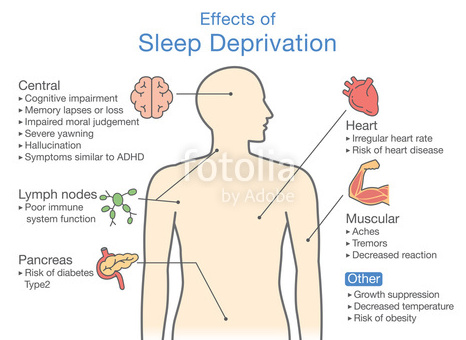RESISTING A REST

 BY AUSTIN WAHLE – Holiday season is approaching… which means jingle bells, evergreen candles, and carols filling the cool night air. Unfortunately, one of the jolliest times of the years aligns with one of the most dreaded… one that is filled with late nights at the library, the smell of paper, and the fifth cup of joe in a day. This not-so most wonderful time of the year is, as you guessed, finals week.
BY AUSTIN WAHLE – Holiday season is approaching… which means jingle bells, evergreen candles, and carols filling the cool night air. Unfortunately, one of the jolliest times of the years aligns with one of the most dreaded… one that is filled with late nights at the library, the smell of paper, and the fifth cup of joe in a day. This not-so most wonderful time of the year is, as you guessed, finals week.
As nights at the library studying get later, hours in bed become fewer and farther between. In a statistics class my freshman year, we took a poll amongst ourselves for the number of hours of sleep obtained the previous night. The average came in at a whopping five hours, with extremes being as low as two and as high as ten (I was one of these extremes, but I won’t bore you with those details). This poll was conducted during a typical semester schedule, and from experience, this number only plunges the closer you get to finals.
Many people take their time staying up late to study in a classic “all nighter” fashion, but this can actually be worse for our minds and grades than just calling it a night and going to sleep. When a night of sleep is cut short, the tail end of the sleep cycle is cut off. The end of the sleep cycle is characterized mainly by REM sleep, which functions to rest our minds and to allow us to be mentally sharp the next day. This means that by staying up late to study, we deny our minds the chance to rest, recover, and sort information. Many a time can lead to an impaired ability to remember the information that you stayed up to study in the first place.
A recent study conducted by researchers at UCLA found that sleep deprivation affects the literal building blocks of the brain, the neurons that allow it to communicate with itself, and the rest of the body (Nir et al. 2017). Sleep deprivation impedes the ability of cells in the brain to process visual stimulus, meaning that vision and conscious thought are not linked as closely as they would be in a well-rested brain. If you have ever stayed up late for a test and then looked at the first question and been slow to process what it was asking, it could be because your brain itself does not have full capability of processing the image. Combined with your lack of REM sleep from the previous night and your impaired ability to remember the information, you are playing a lose-lose game with this test.
 In addition to the mental fatigue and drowsiness that follow a shortened night of sleep, there are also long-term consequences of repeated sleep deprivation. Disruptions to a body’s normal sleep schedule can result in increased activity in the sympathetic nervous system, increased metabolic activity, and changes in circadian rhythms (Medic, Willie & Hemels 2017). All of these factors combined can create a body that is hyper-responsive to stress, susceptible to mood disorders, cognitive deficits, and performance deficits. Even more long-term effects of repeated sleep deprivation can include hypertension, heart disease, diabetes, obesity, and more (Medic, Willie, Hemels 2017).
In addition to the mental fatigue and drowsiness that follow a shortened night of sleep, there are also long-term consequences of repeated sleep deprivation. Disruptions to a body’s normal sleep schedule can result in increased activity in the sympathetic nervous system, increased metabolic activity, and changes in circadian rhythms (Medic, Willie & Hemels 2017). All of these factors combined can create a body that is hyper-responsive to stress, susceptible to mood disorders, cognitive deficits, and performance deficits. Even more long-term effects of repeated sleep deprivation can include hypertension, heart disease, diabetes, obesity, and more (Medic, Willie, Hemels 2017).
Long-term, intimidating health consequences aside, we all feel better after a night of good sleep, whether our bodies need five hours or ten. There seems to be nothing a good night of sleep can’t improve, so as we approach this finals season, be sure you are recharging your brain so that your holiday season can include less worrying about grades and more hot chocolate and carols.
References
Medic, Willie & Hemels. Short- and long-term health consequences of sleep disruption. NCBI, 19 May 2017.
Nir, Andrillon, Marmelshtein, Suthana, Cirelli, Tononi & Fried. Selective neuronal lapses precede human cognitive lapses following sleep deprivation. Nature Medicine, 2017
